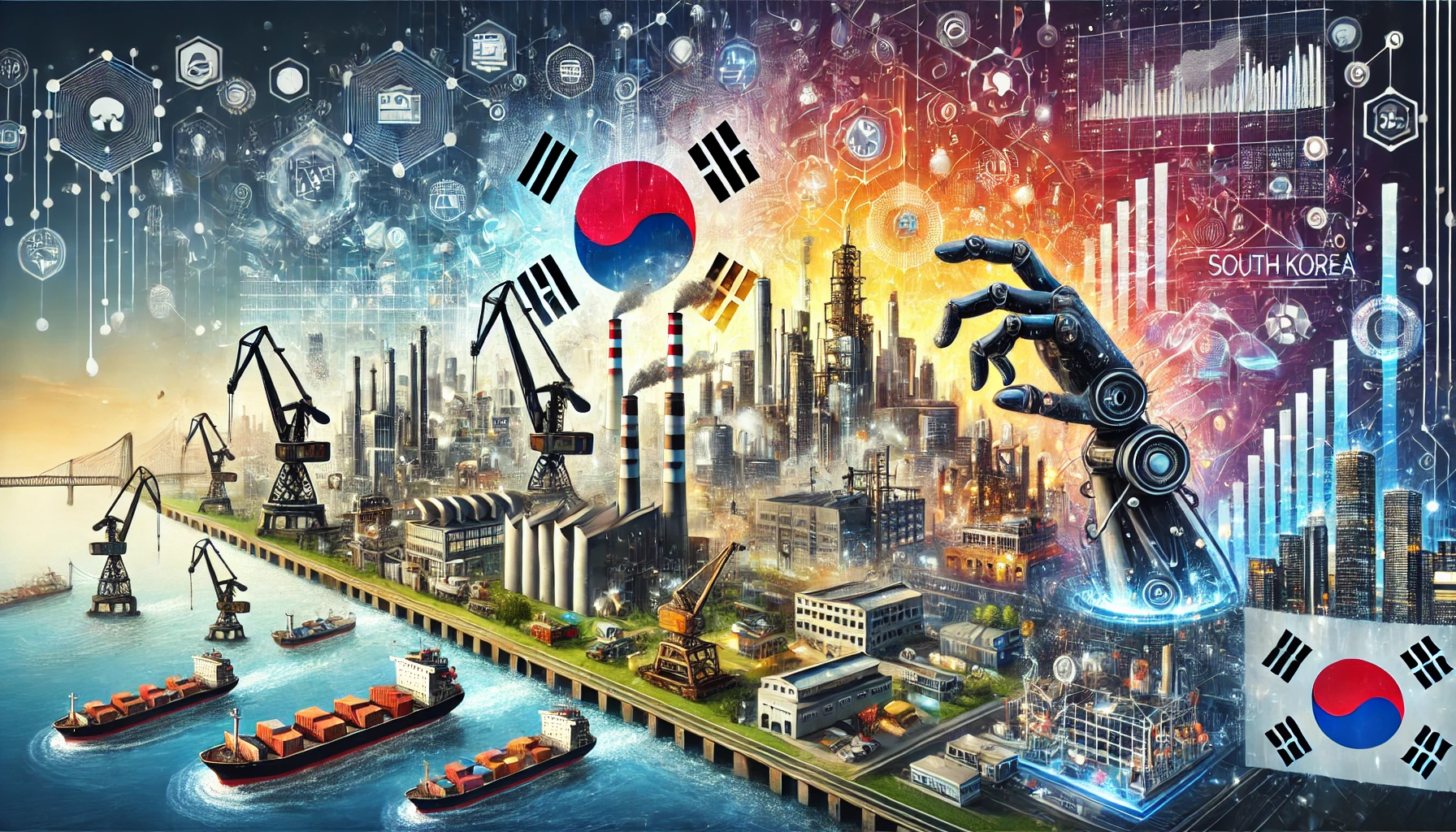South Korea’s Big Push Strategy: Lessons in Industrial Growth and Policy Coordination
The IMF study explores how South Korea’s "big push" industrialization strategy used targeted subsidies, infrastructure investments, and market access policies to overcome coordination failures, transforming the country into an industrial powerhouse. It highlights the critical role of policy integration and timing in fostering sustainable economic growth and addressing regional disparities.

The International Monetary Fund (IMF) conducted an in-depth study into South Korea’s dramatic economic transformation, using the "big push" theory to analyze the mechanisms that propelled the country from a predominantly agrarian economy to a leading industrialized nation. Grounded in both empirical evidence and structural modeling, the research sheds light on how South Korea overcame market coordination failures through targeted policy interventions. By fostering technology adoption, providing government subsidies, and enhancing infrastructure, the country was able to transition to a high-growth trajectory. Drawing from firm-level data, the study highlights how deliberate and integrated policies reshaped South Korea’s industrial landscape, enabling it to compete on a global scale.
Breaking Free from Economic Traps
Central to the study is the analysis of coordination failures that often leave economies stuck in low-growth equilibria. Without proactive government intervention, South Korea risked remaining in a state of underdevelopment, characterized by weak industrial capacity and limited innovation. The IMF researchers employed a structural model to explore how strategic policy coordination can shift an economy from stagnation to robust growth. This model, tailored to reflect South Korea’s conditions during its pivotal industrialization phase, tested the outcomes of various policy scenarios, including subsidies, market access improvements, and infrastructure enhancements. The findings reinforce the idea that the big push strategy was instrumental in breaking free from economic stagnation and laying the groundwork for sustained growth.
The Role of Targeted Subsidies
The study highlights the transformative role of targeted subsidies in accelerating industrial productivity and economic development. Unlike general subsidies, which often result in increased competition without necessarily fostering innovation, technology-focused subsidies directly incentivize firms to adopt advanced technologies. This, in turn, enhanced productivity across the manufacturing sector, particularly in heavy industries. The research underscores that South Korea’s approach went beyond simply allocating resources it created an ecosystem that encouraged technological progress. Furthermore, the success of these subsidies depended on their integration with broader policies, including investments in transportation networks and infrastructure that enhanced firms' ability to access both domestic and international markets.
Infrastructure, Trade, and Policy Integration
The importance of complementary infrastructure investments and market access cannot be overstated in South Korea’s industrialization. The IMF study tested scenarios such as reduced foreign demand, the imposition of protectionist tariffs, and the absence of transportation improvements. The results revealed that South Korea’s economic transformation was heavily reliant on policies that addressed both internal and external market dynamics. For instance, enhanced trade routes and reduced logistical costs amplified the benefits of subsidies, creating a synergistic effect that accelerated industrial growth. Moreover, securing access to global markets played a critical role in sustaining the momentum, allowing South Korea to scale its industrial output and achieve economies of scale.
Regional Disparities and Broader Implications
While the big push strategy yielded substantial national welfare gains, the research also reveals uneven regional outcomes. Areas with better access to infrastructure and markets experienced disproportionate benefits, underscoring the complex interplay between trade linkages, regional development, and competitive pressures. These findings highlight the need for policies that address not only aggregate growth but also regional inequalities to ensure inclusive development. The study’s insights extend beyond South Korea, offering valuable lessons for other developing economies seeking to replicate its success. It underscores the importance of designing industrial policies that are both ambitious and inclusive, balancing national growth objectives with regional equity.
A Model for Developing Economies
South Korea’s industrialization provides a compelling example of how coordinated policy interventions can transform an economy. The IMF research situates this success within the broader debate over export-oriented versus government-led industrial policies. It concludes that these strategies are not mutually exclusive but complementary. By combining export-driven growth with government support for infrastructure and innovation, South Korea created a virtuous cycle of growth and investment. The study also emphasizes the importance of timing and sequencing in policy implementation, arguing that the strategic rollout of subsidies and infrastructure investments at key junctures amplified their effectiveness. This carefully orchestrated approach allowed the country to maximize its industrial potential while mitigating risks.
The IMF’s analysis of South Korea’s big push strategy offers critical insights into the dynamics of industrialization. By addressing coordination failures, fostering technology adoption, and enhancing market access, the country achieved a remarkable economic transformation. The study not only provides a robust analytical framework for understanding how such policies work but also offers practical lessons for policymakers in other developing nations. The research highlights the pivotal role of technology, infrastructure, and trade in shaping industrial growth, demonstrating that with the right mix of policies, even economies facing significant barriers can achieve sustainable development. South Korea’s experience stands as a testament to the power of coordinated policies in unlocking an economy’s full potential.
- FIRST PUBLISHED IN:
- Devdiscourse
ALSO READ
South Korea's Budget Clash: A Nation on the Brink
South Korea on Edge: Former Defense Minister Faces Arrest Over Martial Law Allegations
K-pop Fueled Protests: A New Light on Political Activism in South Korea
South Korea Faces Political Turmoil After President's Martial Law Debacle
South Korea's Budget Blitz: Opposition's Unexpected Slash Spurs Economic Debate









